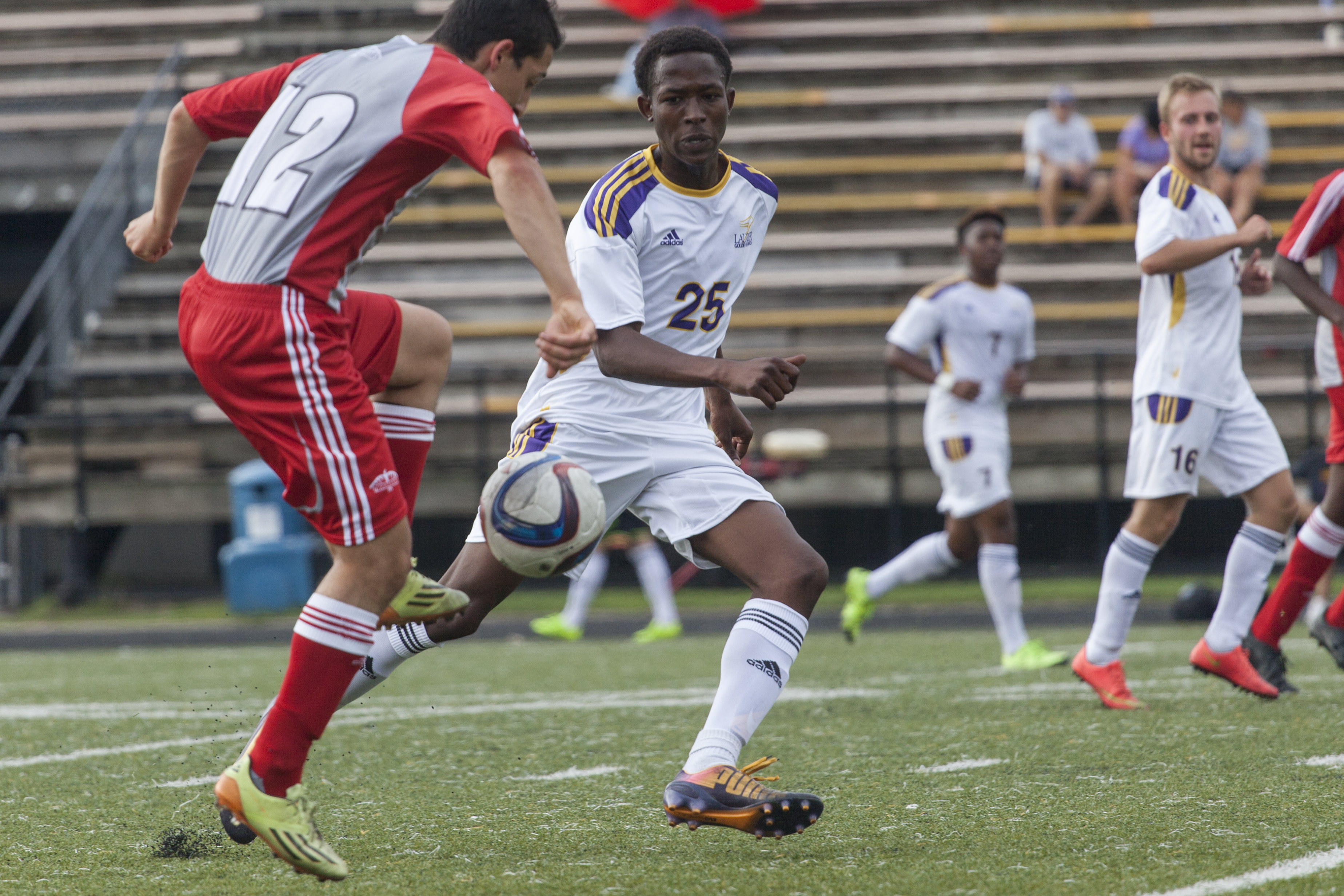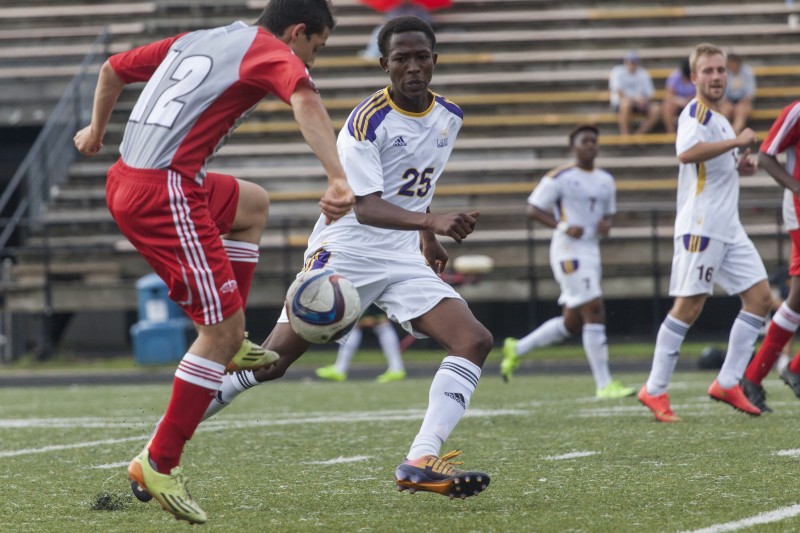Time for a culture change for Laurier men’s soccer

Mario Halapir thinks it is time for a culture change.

Mario Halapir thinks it is time for a culture change.
Over the last seven years, the Wilfrid Laurier University men’s soccer team has reached an impasse — making it to the playoffs only to be eliminated in the quarter-final round. The squad has not made it any further than the quarter-finals since 2008 when they earned a national berth. After their season was cut short by the York Lions last year for the third time in as many years, a change was needed
And now is the perfect time to do it.
“Last year I thought was better than years in the past, but basically we are changing guard, a lot of new faces,” said Halapir, the men’s soccer head coach.
This is also partly due to the large turnover that occurred over the summer. The 2015 roster is more compact, with 16 of the 33 athletes not returning to the team. The 2015 team is comprised of 27 athletes, six less than last year.
“Potentially by design as well,” Halapir explained, regarding the massive turnover. “There’s been what we would like to say is our turning point and we’d like to see if we can actually create a new culture in men’s soccer and I think that it’s about time that it starts.”
“I think with the new group of players coming in, and the existing players that are there with some of the old leadership that we have, I think it will be a very good balance and I think this will be a very good start for us,” he continued.
Over the course of the summer, the Hawks lost fourth-years Jordan Kotsopolous, Donald Chmura and Tyrell Wilson to eligibility, as well as goalkeeper Julien John who decided not to come back. However on the upside, 2014’s rookie class is a year older and more experienced, and will be the core as the team progresses forward. The Hawks also hold on to forward Tommy Sitaridis, a huge scoring threat while on the pitch, as he was the top Hawk in the Ontario University Athletics goal scoring category. On the back end, the Hawks will be looking for fifth-year Blake Whiteley to bring a veteran presence to the defence.
In addition, the Hawks brought in 10 new rookies, looking to send the Hawks in the right direction in the coming years, as well as adding some much-needed depth to give the head coach some options to work with on the field.
But the process may be a long one.
The team opened up their season splitting their weekend against Algoma with a 1-1 tie and a 4-0 win. After falling behind early in the first half of the first game, the Hawks were able to find the equalizer in the 62nd minute, but weren’t able to capitalize on their opportunities to get the full three points.
“I feel it was a disappointing result,” said second-year Niklas Bauer right after the game. “I feel like we controlled most of the play. Honestly I think we deserved a better result but sometimes it doesn’t go your way. The other team battled hard and gave us a good run but in the end it just wasn’t good enough.”
Halapir doesn’t see drawing with Algoma as an issue, but more so an opportunity for some of the young recruits to get their toes wet and see what it’s like playing in the OUA.
“It’s good for us this weekend to play a lot of players in the lineup, probably have six new players in the lineup so that we really get a chance to see all the first year guys play this weekend. So sacrificing maybe some points on the weekend is something we have to live with but maybe I think we’re going to be fine,” he said.
Although Halapir acknowledges there will be an experience factor involved when playing the rookies, he knows every player is going through a transition period when moving up into playing university soccer opposed to playing in their previous league.
“There’s always a transition for every player coming in no matter what level of soccer. Coming into varsity play, it is for the most part, it is a lot quicker than where most of them are coming from playing as. They need to learn, they need to understand in order to be able to execute and then at the pace of what the game is asking,” he said.
“That is always going to be the case and I think that it’s just how quickly that adjustment is going to happen is how successful you are going to be and that will determine how quickly you are going to have success on the field.”

